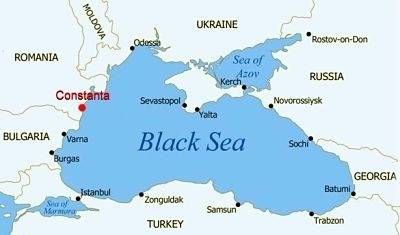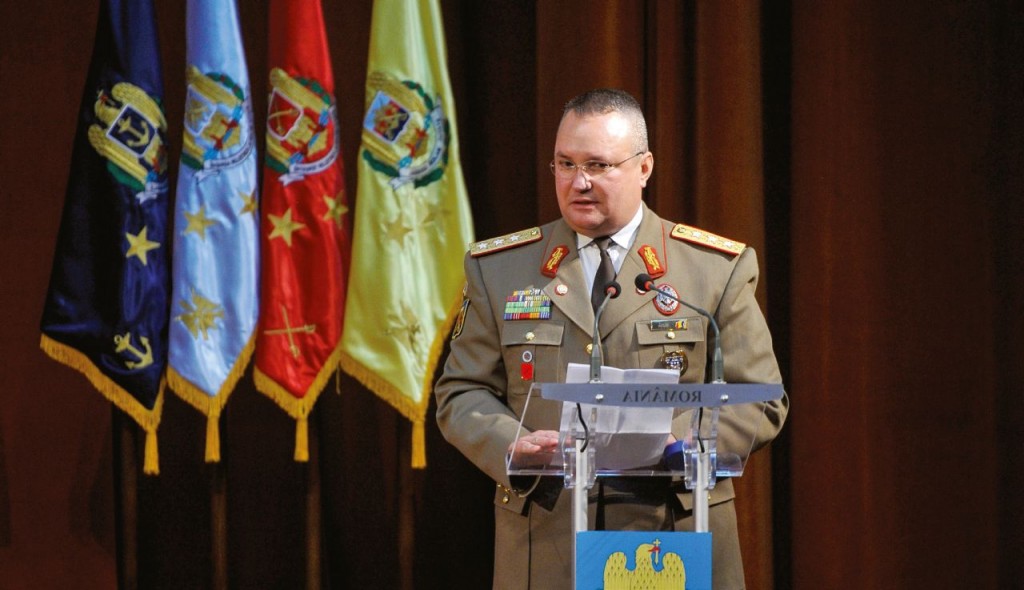Secretarul general al NATO, Jens Stoltenberg, a anunţat joi că miniştrii de externe din statele membre au aprobat un pachet de măsuri menit să sporească prezenţa Alianţei în Marea Neagră, transmite agenţia EFE.
“Am convenit asupra unui pachet de măsuri pentru îmbunătăţirea monitorizării situaţiei şi sporirea ajutorului nostru destinat Georgiei şi Ucrainei”, a spus Stoltenberg la o conferinţă de presă. Detaliind acest pachet de măsuri impulsionat de SUA, el a menţionat că include iniţiative de îmbunătăţire a instruirii forţelor maritime şi a gărzilor de coastă ale Georgiei şi Ucrainei, vizite în porturi, exerciţii militare şi intensificarea schimburilor de informaţii.
“Acestea se adaugă cooperării noastre, care deja este apropiată. Chiar acum, grupuri navale ale NATO patrulează în Marea Neagră şi astăzi fac exerciţii împreună cu nave ale Ucrainei şi Georgiei”, a indicat Stoltenberg, referindu-se la manevrele Scutul Maritim (‘Sea Shield’).
Elaborarea acestui pachet de măsuri a fost anterior anunţată de ambasadoarea SUA la NATO, Kay Bailey Hutchison.
Obiectivul, a explicat Hutchison, este contracararea influenţei Rusia în Marea Neagră, iar pachetul de măsuri va include “monitorizarea, supravegherea avioanelor şi, de asemenea, ca unele nave ale NATO să se deplaseze în Marea Neagră pentru a se asigura că navele ucrainene pot traversa în siguranţă strâmtoarea Kerci către Marea Azov”, unde în luna noiembrie două nave ale forţelor navale ucrainene au fost sechestrate de Rusia cu tot cu membrii echipajelor, scrie Agerpres.
Declaratia Secretarului General al NATO
Good morning.
Seven decades ago, on this day, in this city, our Alliance was founded.
Foreign Ministers from twelve countries across Europe and North America signed the Washington Treaty.
Those nations promised to stand together, and to defend each other. That pledge has given us seventy years of peace, prosperity and security.
This morning Allied Foreign Ministers addressed Russia’s continuing violation of the INF Treaty.
By fielding multiple battalions of SSC-8 missiles, Russia has made the world a more dangerous place.
The United States and other Allies have tried to engage with Russia about this missile system for several years.
We all agree that Russia continues to be in violation of the treaty.
And today, we all once again call on Russia to return to full and verifiable compliance with the INF Treaty.
But time is running out. So NATO is preparing for a world without the INF Treaty.
Today, we discussed the way forward. And what potential measures we can take, should Russia not return into compliance.
We will not mirror what Russia is doing. We will be measured and coordinated. And we have no intention of deploying ground-launched nuclear missiles in Europe.
At the same time, NATO will continue to maintain credible and effective deterrence and defence.
And all Allies are strongly committed to arms control and non-proliferation.
Russia’s ongoing violation of the INF Treaty is a pattern of destabilising behaviour.
Russia used force to illegally annex Crimea from Ukraine. And continues its military build-up across the region.
We call on Russia to release the Ukrainian sailors and ships it seized last year near the Sea of Azov.
And we discussed what more we can do to enhance our security in the Black Sea region.
We agreed a package of measures to improve our situational awareness. And to step up our support for both Georgia and Ukraine. In areas such as the training of maritime forces and coast guards. Port visits and exercises. And sharing information.
This will build on our already close cooperation.
Right now, one of NATO’s naval groups is on patrol in the Black Sea. And today, it is exercising with Ukrainian and Georgian ships.
So we will maintain our focus, and our presence in this vital region.
Comunicatul final :
- Seventy years ago, NATO’s founding treaty was signed in Washington D.C. Today, our Alliance is the strongest in history, guaranteeing the freedom of our almost one billion citizens, the security of our territory, and the protection of our values, including democracy, individual liberty, human rights, and the rule of law. We reaffirm the enduring transatlantic bond between Europe and North America, our adherence to the purposes and principles of the Charter of the United Nations, and our bedrock commitment enshrined in Article 5 of the Washington Treaty that an attack against one Ally shall be considered an attack against us all. We are determined to improve the balance of sharing the costs and responsibilities of our indivisible security. We remain committed to all three aspects of our 2014 Wales Defence Investment Pledge, including the spending guidelines for 2024, planned capabilities, and contributions to missions and operations. We have made considerable progress but we can, must, and will do more.
- NATO is a defensive alliance, which has constantly adapted to meet new threats to our security and keep our people safe. Alliance unity and purpose helped bring an end to the Cold War, and stability to the Balkans. Accession of new NATO members brought security to millions more Europeans. In response to the 9/11 attacks, NATO invoked Article 5 for the first time in solidarity with and support of the United States. We pay tribute to all who have been part of NATO’s seventy years of success. We honour those who have sacrificed their lives to keep us safe.
- Today, we face an unpredictable and challenging security situation, including a more aggressive Russia and a persistent threat of terrorism in all its forms and manifestations. The rules-based international order is under challenge. Instability beyond our borders is contributing to irregular migration. We face cyber and hybrid threats. Rapid and profound technological change requires new approaches.
- As an Alliance, we will face these challenges together. Since 2014, we have been strengthening our collective defence and capabilities, our deterrence and defence posture, and our resilience. We are standing firm and working together as Allies and with international partners to fight terrorism. We have built strong partnerships in our neighbourhood and beyond, with the United Nations, the European Union, and other organisations, to address the threats and challenges we face. We are committed to NATO’s Open Door policy because it strengthens the Alliance and contributes to Euro-Atlantic security. And we are committed to taking whatever measures we must to protect our territory and people. Our continuing adaptation will allow us to face any threat, at any time, from any direction. With the strength of our values, our people, and our unity and solidarity, we will make the Alliance ever stronger.





